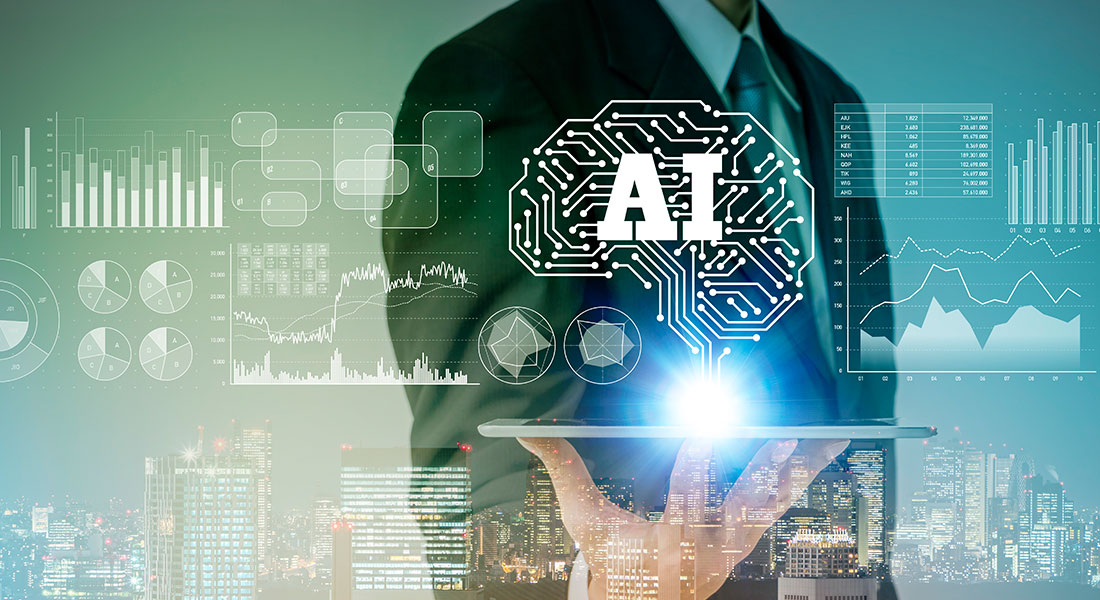The Learning Revolution: How AI-Enabled LMS Platforms are Reshaping Corporate Training

In recent years, the integration of artificial intelligence (AI) into various sectors has brought about transformative changes. Learning Management Systems (LMS) are one of the many tools/platforms that have leveraged AI effectively. AI-enabled LMS platforms are revolutionizing the way trainers and learners interact with content, assessments, and learning experiences. This article provides a comprehensive overview of the capabilities and benefits of AI-enabled LMS platforms and helps us explore a realm where artificial intelligence paints the canvas of possibilities, empowering employees and organizations to sculpt a future of professional development that knows no bounds.AI-Enabled LMS Platforms Have Indeed Revolutionized Corporate Training Entirely!
Here are a few things they are capable of -
- Personalized learning paths
- Adaptive assessments
- Automatic grading and feedback
- Predictive analytics for employee success
Read on to check out a few more features of AI-enabled LMS platforms.
An Overview of What AI-Enabled LMS Platforms Can Do
1. Personalized Learning Paths
AI-enabled LMS platforms can gather and analyze a wealth of data about each type of learner, including their learning preferences, past performance, and strengths. This data is then used to create personalized learning paths tailored to individual employees. For example, if a person is a visual learner and performs well with interactive content, the AI system will prioritize delivering visual aids, videos, and simulations. Similarly, if an employee struggles with a particular concept, the system can offer additional resources or exercises to reinforce understanding in that specific area. As the learner progresses, the AI adjusts the learning path to ensure optimal engagement and mastery of the subject matter.
2. Adaptive Assessments
Traditional assessments often present a static set of questions regardless of an employee's proficiency level. AI-enabled LMS, however, utilizes adaptive assessments that adapt in real time based on the learner’s responses. If a person answers a question correctly, the system will present a slightly more challenging question next. Conversely, if anyone answers incorrectly, the difficulty level decreases. This dynamic approach ensures that assessments accurately gauge the employee's knowledge and provide a more nuanced understanding of their strengths and areas for improvement. Adaptive eLearning assessments also reduce test anxiety by tailoring the experience to the individual's capabilities.
3. Intelligent Content Recommendation
AI-enhanced LMS can leverage machine learning algorithms to analyze vast repositories of training content. Based on a learner's current progress, preferences, and learning objectives, the system recommends relevant resources such as articles, videos, eBooks, or interactive simulations. These recommendations help employees explore topics beyond the core curriculum, fostering a sense of curiosity and autonomy in their learning journey. As learners engage with recommended materials, the AI system continues to refine its suggestions, ensuring a continuous cycle of learning enhancement.
→ Download eBook Now: The State of Learning
4. Real-time Progress Tracking
AI-powered learning analytics in LMS platforms provide trainers and learners with real-time insights into individual progress and performance. The company can monitor how each employee is engaging with the course materials, identifying patterns and trends. If a learner's performance drops or they seem to be struggling, trainers receive immediate notifications, allowing them to intervene proactively. Additionally, employees gain a clear understanding of their strengths and weaknesses, enabling them to take ownership of their learning and make informed decisions about where to focus their efforts. The availability of real-time data helps both trainers and learners make data-driven adjustments to ensure organizational success.
5. Natural Language Processing (NLP) for Communication
AI-powered LMSs leverage Natural Language Processing (NLP) to facilitate seamless communication between various stakeholders, including external employees, trainers, and peers. Chatbots, powered by NLP, are integrated into the system to provide instant responses to common queries, offer guidance on course materials, and even engage in interactive discussions. This not only enhances accessibility to information but also creates an engaging and dynamic learning environment. Employees can seek help outside of traditional training hours, instructors can provide timely answers, and group discussions can be facilitated, fostering collaborative learning experiences.
6. Automated Grading and Feedback
AI-driven automated grading and feedback systems streamline the evaluation process for trainers. These systems can assess assignments, quizzes, and exams rapidly and accurately. AI analyzes responses against predefined criteria, providing instant feedback to learners. This immediate feedback loop helps learners understand their mistakes, make corrections, and learn from them, thereby accelerating the learning process. Trainers can focus their time on more strategic tasks such as personalized instruction and curriculum development, rather than spending hours grading assignments.
7. Predictive Analytics for Employee Success
AI-enabled LMS platforms harness predictive analytics to identify employees who might be at risk of workplace challenges. By analyzing historical data and patterns, the system can pinpoint learners who are struggling, disengaging, or falling behind. Trainers receive alerts or notifications about these employees, enabling timely intervention and targeted support. This proactive approach empowers trainers to provide personalized assistance, addressing issues before they escalate and enhancing overall employee success rates.
8. Continuous Improvement of Content
AI-driven analysis of employee interactions with course content facilitates continuous improvement. The LMS tracks how learners engage with different materials—what they find engaging, which parts they struggle with, and where they spend the most time. This data-driven insight informs trainers and instructional designers about the effectiveness of specific content elements. They can then refine, update, and enhance the materials to better align with varioustraining needs and learning objectives. This iterative process ensures that the course content remains current, engaging, and tailored to the evolving needs of the learners.
Parting Thoughts!
AI-enabled Learning Management Systems (LMS) are transforming corporate training by enhancing personalization, engagement, and effectiveness. These systems leverage artificial intelligence to tailor learning experiences, provide timely feedback, and optimize content delivery. As the modern work landscape continues to evolve, AI-enabled LMSs are poised to play a pivotal role in shaping the future of learning and training. To make sure you are on the right track, you need to be aware of what’s the current state of learning and its potential future, and to help you with that, here’s an insightful eBook.





![How does AI Foster Accessibility in Online Training [Infographic]](https://blog.commlabindia.com/hubfs/blogs/online-training-ai-accessibility-info.jpg)